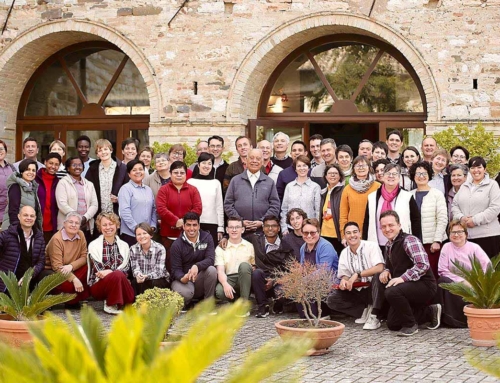COMMENT ON THE GOSPEL – V SUNDAY OF LENT (B)
Sunday, March 17, 2024
Jn 12:20-33
“He replied to them, ‘The hour has come for the Son of Man to be glorified. Very truly I tell you, unless a kernel of wheat falls to the ground and dies, it remains only a single seed. But if it dies, it produces many seeds. Anyone who loves their life will lose it, while anyone who hates their life in this world will keep it for eternal life. Whoever serves me must follow me; and where I am, my servant also will be. My Father will honor the one who serves me.'”
(Jn 12:23-26)
With these words, Jesus reveals to us a secret of capital importance, which is at the foundation of Christian life and mysticism. It is a paradox that Jesus Himself fully lived and reveals to us in the imminence of His death and resurrection.
In the three synoptic Gospels, this same speech of Jesus is reported, although in different contexts and with different terms, we find, in fact: “Whoever wants to save their life will lose it, but whoever loses their life for my sake, will save it” (Matt 16:25; Mk 8:35, Lk 9:24); in the Gospel of John, instead: “Anyone who loves their life will lose it, and who hates their life in this world will keep it for eternal life.”
In the synoptics the terms in contrast are: save – lose; while in John: love – hate. These are two significant terms with opposite meanings.
“To love one’s life,” “to cherish one’s life,” means to be the center of everything we are and do. However, no matter how much one tries to do good deeds, what discerns their value is the intention for which they are done. If in the intention, I am and remain at the center, then I lose the blessing, the grace, the gift of life in its fullness; I live less and less, until I become depressed. Conversely, if I “hate” my life, meaning I put the other at the center – meaning Jesus and in Jesus, the neighbor – then I live in fullness, and I grow more and more in enthusiasm, strength, vitality, but above all, I am an authentic disciple of Jesus the Teacher, who no longer calls us servants, but friends (Jn 15:15). The same acts of service we do make us servants when we perform them putting our ‘self’ at the center, while they make us friends in the moment in which the center of what we are and do, we put Jesus, and with Him, our brothers and sisters.
Fr. Giuseppe








